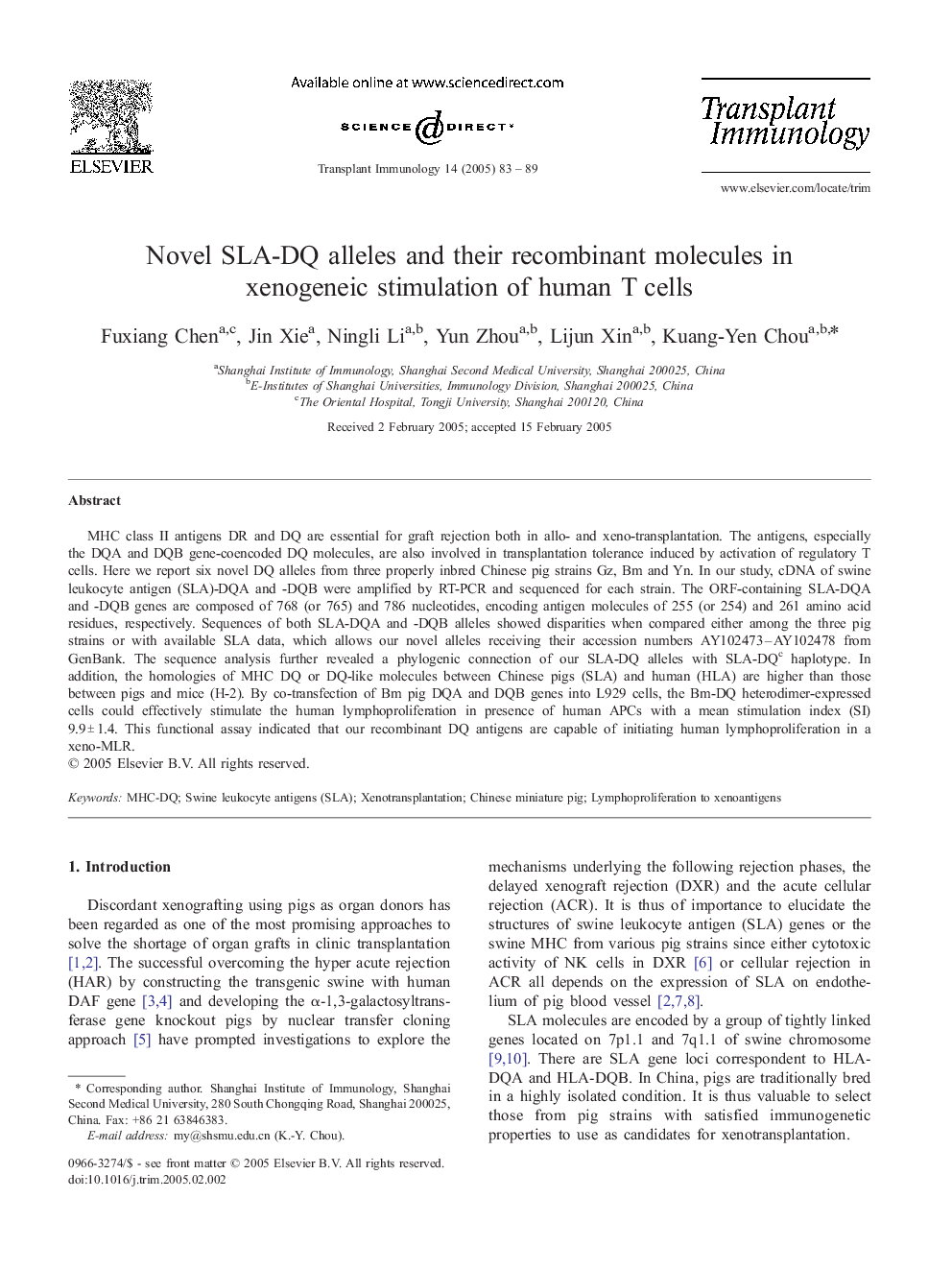| Article ID | Journal | Published Year | Pages | File Type |
|---|---|---|---|---|
| 9273927 | Transplant Immunology | 2005 | 7 Pages |
Abstract
MHC class II antigens DR and DQ are essential for graft rejection both in allo- and xeno-transplantation. The antigens, especially the DQA and DQB gene-coencoded DQ molecules, are also involved in transplantation tolerance induced by activation of regulatory T cells. Here we report six novel DQ alleles from three properly inbred Chinese pig strains Gz, Bm and Yn. In our study, cDNA of swine leukocyte antigen (SLA)-DQA and -DQB were amplified by RT-PCR and sequenced for each strain. The ORF-containing SLA-DQA and -DQB genes are composed of 768 (or 765) and 786 nucleotides, encoding antigen molecules of 255 (or 254) and 261 amino acid residues, respectively. Sequences of both SLA-DQA and -DQB alleles showed disparities when compared either among the three pig strains or with available SLA data, which allows our novel alleles receiving their accession numbers AY102473-AY102478AY102473AY102474AY102475AY102476AY102477AY102478 from GenBank. The sequence analysis further revealed a phylogenic connection of our SLA-DQ alleles with SLA-DQc haplotype. In addition, the homologies of MHC DQ or DQ-like molecules between Chinese pigs (SLA) and human (HLA) are higher than those between pigs and mice (H-2). By co-transfection of Bm pig DQA and DQB genes into L929 cells, the Bm-DQ heterodimer-expressed cells could effectively stimulate the human lymphoproliferation in presence of human APCs with a mean stimulation index (SI) 9.9 ± 1.4. This functional assay indicated that our recombinant DQ antigens are capable of initiating human lymphoproliferation in a xeno-MLR.
Keywords
Related Topics
Life Sciences
Immunology and Microbiology
Immunology
Authors
Fuxiang Chen, Jin Xie, Ningli Li, Yun Zhou, Lijun Xin, Kuang-Yen Chou,
